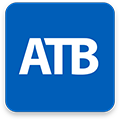When should a small business owner talk to an advisor about funding? The simple answer is to apply when you need it or are making any changes to your business. The best strategy is to apply before you think you need it because different lending types have different requirements, so your advisor can give tailored advice to help you achieve your goals.
Rosie runs a successful pop-up ice cream shop out of a commercial kitchen. Her products have become popular at local events, and she wants to expand to a brick-and-mortar storefront to grow her business. Rosie found a family-owned cafe she plans to buy when the owners retire in five years. She has started the conversation with her advisor now so she can set herself up for success and be prepared when the time comes to buy the business. By doing this, Rosie is able to seek advice and keep her advisor informed of her goals during the transition period.
The earlier you can get to the bank and have a conversation, the better.
Financial groundwork
The importance of early planning cannot be overstated. As soon as you have a business idea, start laying the financial groundwork by exploring loan options. Early decisions, such as how your plan on structuring your business, can impact what kind of lending you qualify for later.
Your business plan is a blueprint outlining your company, products and services, SWOT analysis, market research, marketing strategy, operations and finances. A well-thought-out business plan demonstrates to lenders that you’ve thought strategically about how to make your business work, which will support your loan application.
Advisors want to know about your background (including the five Cs of credit), hurdles and goals. They will ask you about things in your business plan to uncover your needs and find the right lending solutions for you, namely:
- your business structure
- if you have partners, shareholders or employees
- how you’re paid
- how you pay bills and employees
- insurance
- marketing
- your competition and market
- your location
- industry challenges
- banking needs, like credit card features (are lower interest rates or rewards more important?)
Conduct a thorough assessment of your finances by analyzing your cash flow, balance sheet and credit score. This information not only helps determine the amount of funding necessary but also provides insight into your ability to repay loans. Your advisor will ask for many documents to help illustrate your financial situation and creditworthiness, including:
- recent personal tax statements (like T1 General and Notice of Assessment): to confirm income and payment of personal taxes.
- personal financial statements: to provide insight into your personal net worth.
- personal credit bureau report: to demonstrate how you manage personal debt.
- year-end compilation engagement financial statements: to show your company’s financial performance during a specific period, usually featuring an income statement and balance sheet prepared by an accountant.
- incorporation documents: to show if your business is registered and headquartered in Alberta, and has a legal entity active status and up-to-date annual filings.
- your business plan and cash flow projections: to be requested if you are a newer business, depending on how much money you want to borrow.
What will you use the money for? Maybe you’re buying equipment, expanding operations or bridging cash flow gaps. Having a clear, specific plan for the funds shows lenders how you’ll use it to grow your business.
ATB offers many lending products, including the Canada Small Business Financing Program, lines of credit, term loans and credit cards.
Relationship building
Establishing a relationship with your bank early on is beneficial because regular communication fosters trust and familiarity, making it easier to discuss financial needs and explore loan options when the time comes. Plus, advisors who are familiar with you and your company are better equipped to provide advice throughout the lifecycle of your business, including during the loan application process and beyond. Advisors are there to guide you through business milestones and provide resources to support your journey. Your financial institution may even be able to recommend other experts to support your business, such as a lawyer, accountant or bookkeeper, to name a few.
What considerations need to be in your budget and lending timeline? For example, you might look at your equipment on a monthly basis to evaluate its replacement timeline. Maybe supply costs have increased this month, so you need to charge more for your products. If you look at it on a monthly basis, you can adapt and protect your profits. Ask your advisor about approval timelines—it may take longer to get the money than you think.
The more time we have, the better it is because we can make sure we have all those steps in place to get you what you need when you need it.
-Michelle Hougestol, ATB Entrepreneur Coach
Recap: Be organized
Securing a business loan is a big milestone. By approaching the process with careful planning, you can increase your chances of obtaining lending that supports your vision. Building an ongoing relationship with your advisor is key and sets the stage for long-term financial success.
The sooner you can surround yourself with experts, including your advisor, the better.
Book an appointment with an ATB Business Advisor to proactively discuss your business' needs and advice to support your growth.
